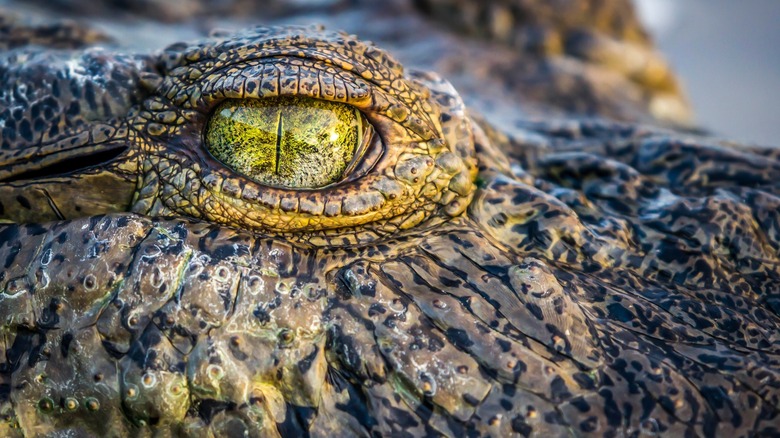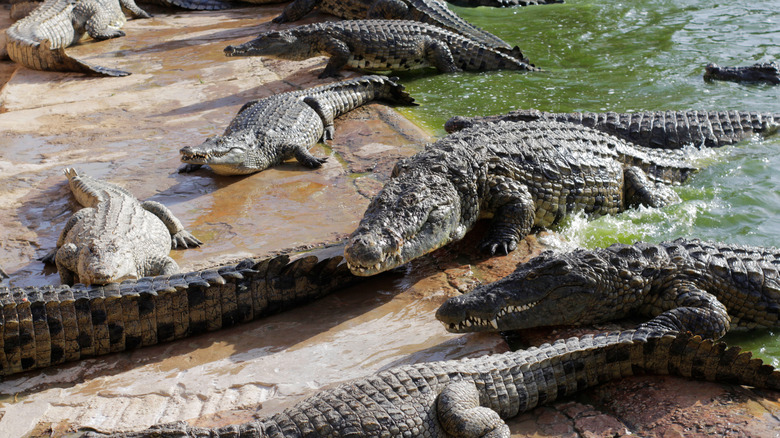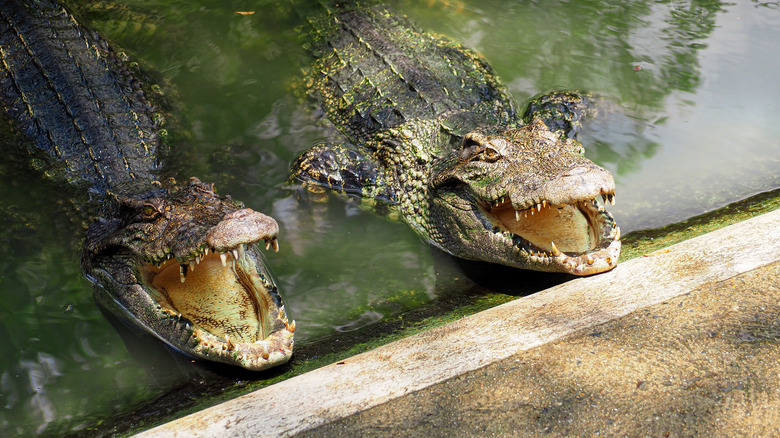The Truth Behind The Crocodile Immortality Myth
We humans are among the longest-living creatures on Earth. According to Guinness World Records in February 2022, the oldest man alive is one Juan Vicente Pérez. This hardy Venezuelan was, at the time the record was officially verified, approaching his 113th birthday.
Naturally, few of us will reach such a ripe old age, but we don't have to be as blessed as Pérez to appreciate how long and rich our lives can be. The average global life expectancy for humans, per the World Health Organization, is 73 years. However, there are extraordinary animals all around the world that put us to shame. Guinness World Records, in fact, states that Ming, a quahog clam, was named after the Chinese dynasty that ruled at the start of its life, a staggering (estimated) 507 years ago (as of November 2013).
Some animals, however, go further still, and they are believed to be functionally immortal. Crocodiles are one species believed to be so, but sadly that's a myth.
The myth of immortality
Crocodiles are ancient and remarkable survivors. In the paper "Environmental drivers of body size evolution in crocodile-line archosaurs" (via Communications Biology), Maximilian T. Stockdale and Michael J. Benton detail just how long these intimidating creatures have been around. "Crocodilians have a rich history, including amphibious, marine and terrestrial forms spanning the past 247 Myr," they state. Even more remarkable than that, according to the researchers, "The modern crocodilian body plan has existed since the Early Jurassic, 200 Ma, and yet their extant diversity is only 24 species."
In short, crocodiles have existed for millions of years, and have changed very little in all that time. They may be as tough as their thick, scaly skin would suggest, but it seems they aren't immortal.
In 2016, Vice reported that crocodiles simply continue to grow and grow as they age, but do not die of old age itself. Dr. Michio Kaku stated, per Vice, that these all-but-eternal creatures were killed only by "starvation, accidents, or disease." As it turns out, though, this doesn't seem to be the case at all.
Crocodiles live long but limited lives
Zoologist Adam Britton, in a Twitter response to the piece, wrote, "... crocodile[s] are apparently immortal? No, they're not. They don't even grow indefinitely." The Earth Touch News Network reports that Britton further explained, "The largest crocs are the ones that grow the fastest when they are young." As they age, it seems, their growth gets increasingly slower until their size becomes essentially constant.
They do age, that's the key thing. Earth Touch News Network goes on to report that they experience signs of aging that are similar to those in humans: cataracts, weakening and limited fertility can ensue. National Geographic reports that the expected lifespan of a wild saltwater crocodile is 70 years, demonstrating that for these incredible creatures, while they're about as long-living as we are ourselves, immortality is impossible.
Another aquatic creature often thought to be immortal is the lobster. According to the Natural History Museum, though, the tremendous amounts of energy spent by their lifelong molting can kill them, as, of course, will predators and sickness.


